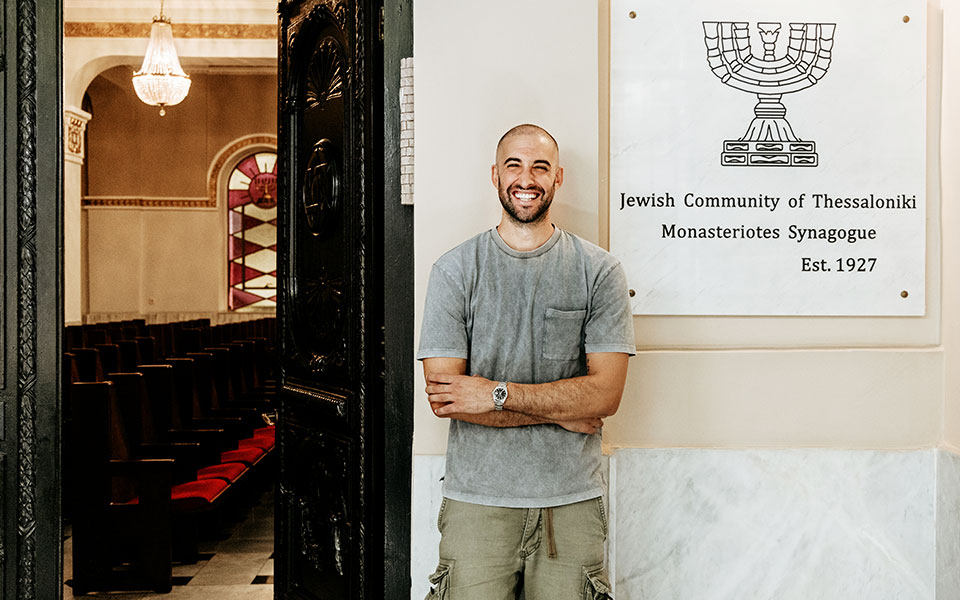For much of its Ottoman and modern history, a unique demographic trait made Thessaloniki stand out from all other cities in the wider region. From the early 1500s to the late 1800s, Jews made up the majority of the inhabitants, earning the city the nickname “Madre de Israel” (“Mother of Israel”). They remained a plurality up until the city’s incorporation into Greece during the First Balkan War (1912). In 1943, the city’s 60,000 Jews were deported to the Nazi extermination camps, where 94% perished in the Shoah, or Holocaust.
Today, there are only a few hundred Jews residing here, and there’s a conspicuous scarcity of Jewish landmarks. Besides the Jewish Museum, the Holocaust Memorial, and the Modiano Market, few clear traces of Jewish presence are found in the cityscape. The days when Judeo-Spanish was heard in every street corner seem much more remote in time than they actually are. Yet the Jews are still here. The younger generations, the third and fourth after the Shoah, speak of a lively community determined to perpetuate a Jewish presence.
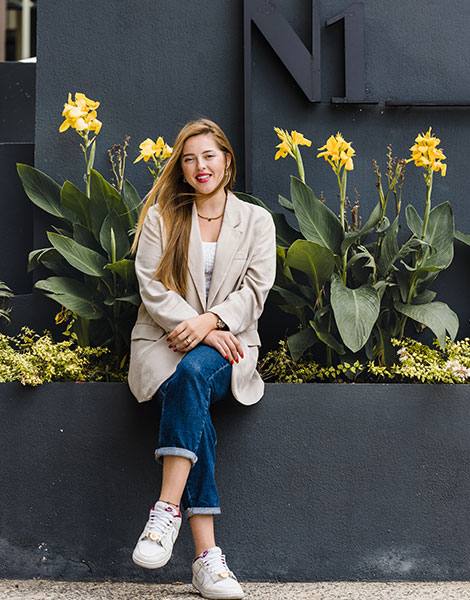
© Olga Deikou
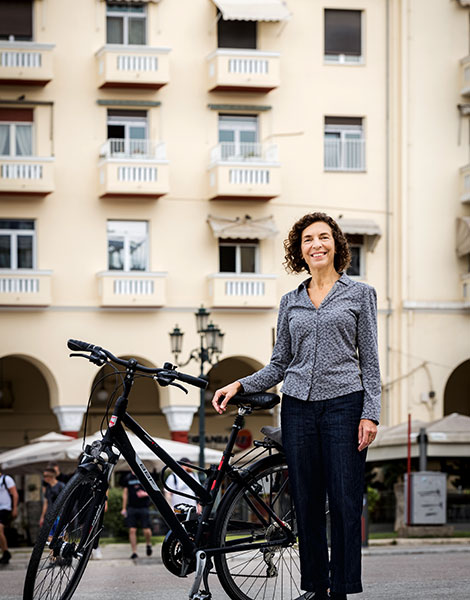
© Olga Deikou
A close-knit community
Very few local Jews practice their religion, despite the community formally being registered as Orthodox Jews – a discrepancy characteristic of every Greek-Jewish community. “None of us keeps kosher or observes religious rules,” says 26-year-old Elena Saias, who runs an e-shop and is a TikTok influencer. “I don’t think being observant makes you a ‘better’ Jew. I’m very attached to Judaism and our heritage. The shared experience of being a religious minority also brings us closer,” she adds. “Our identity rests on traditions, customs, and collective memory,” reflects 34-year-old Mario Matalon, a former professional basketball player now working in real estate.
Like most residents, local Jews consider their attachment to the city central to their identity. “Thessaloniki is home,” says acupuncturist Orly Barziv, born here to a Greek-Jewish mother and an Israeli father. Barziv lived in Holland, Germany, and Britain for her studies in astrophysics. “There was this magnet which drew me back. I feel at home here; Thessaloniki is like my childhood bedroom. The Jewish community is akin to an extended family. We grew up together, and most families are related by blood or marriage.”
Attendance at the local Jewish School and participation in the summer camp are formative experiences for local Jews. The former operates as a special state school at the kindergarten and primary school levels; the latter serves all Greek-Jewish communities. “The Jewish School is where our children are taught our customs, traditions and the basic tenets of our religion, while they also take Hebrew lessons,” says pharmacist and mother-of-two Delia Filosof. Matalon concurs: “School and summer camp are the backbone of our Jewish upbringing.”
It’s the summer camp for which the fondest memories are reserved. “Ever since it was launched in the 1950s, it has remained the most successful institution of Greek Judaism,” stresses Iosif Vaena, a pharmacist and researcher of local Jewish history. “This year, the demand was so high that it was difficult to secure a place for one’s child,” he says. Eli Alhanati, who works for a jewelry wholesaler, remembers it as “the most cherished community experience: a chance to socialize, to get to know Jews from other Greek cities and, perhaps, to flirt.” Architect Beatrice Mossiou remembers her days there with fondness. “Children come from all over Greece, as well as from families in Israel with Greek roots,” she says. Saias agrees: “I joined for several summers and made friends for a lifetime.”
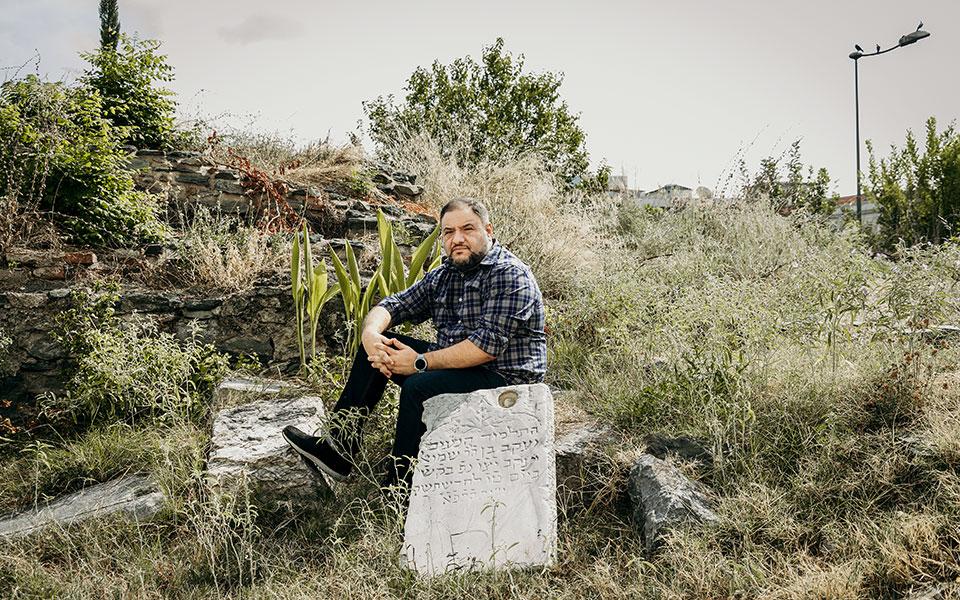
© Olga Deikou
“So, your family came from Israel?”
Judeo-Spanish, part and parcel of the Sephardic identity for centuries, is sadly no longer spoken. Most young people understand only a few words. On the other hand, many understand basic Hebrew, thanks to the Jewish School, but almost nobody is proficient. They look and speak like every other Greek, and if anything signals their Jewish heritage, it would be their names. “The moment I introduce myself, I get all these questions,” Barziv says. “Just say ‘Matalon’ and wait for the question,” Mario says. “There’s no bad intention, really, just curiosity. I totally understand.” Others may find the constant questions tedious. “My family calls me Pepo [the Judeo-Spanish nickname for Iosif]. At university, I started using my full name,” Vaena says. “You don’t want to be a Jew 24/7, to stick out all the time, to have to explain. Sometimes you just want to chill.”
A common complaint is that most locals know next to nothing about the history and identity of their Jewish neighbors. “How many times have I been asked whether we came from Israel, whether my parents spoke ‘Israeli’ at home?” says Filosof, who was raised in the small Jewish community of Larissa in central Greece. “The funny thing is I’ve never even been to Israel. Of course, I want to visit; it just hasn’t happened yet.”
For Barziv, it’s not a laughing matter. “It pains me that even close friends ask me when I am going to visit my ‘homeland,’ referring to Israel as such,” she explains. “The obvious point is that I am a foreigner here, even though my family has resided in the city for 500 years!”
“Many of our compatriots still consider us radically different from other Greeks” Vaena says. “The constant reminders of this shape Jewish experience and identity. There’s awkward bewilderment when I assure the person asking where I came from that records show my family arrived in Thessaloniki in the latter half of 1492 and has resided here ever since.”
Filosof speaks for many when she says: “I’d like the average citizen to know that we are a tiny minority and that the only thing which differentiates us from other Greeks is our faith.” All agree, however, that, curiosity and questions aside, they do not recall any directly offensive or threatening treatment.
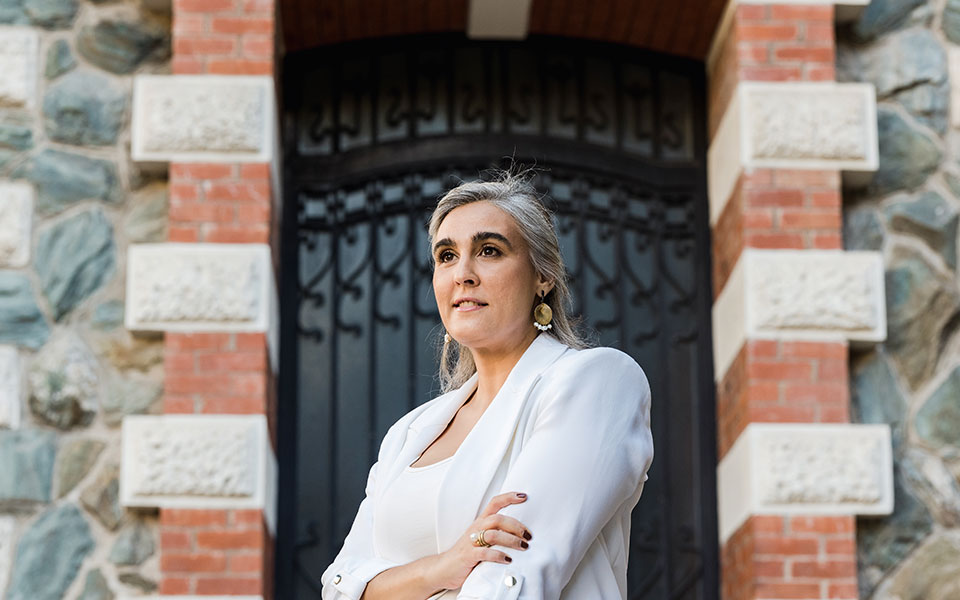
© Olga Deikou
Mixed marriages and demographic revival
Given how few Jews live in Thessaloniki and in Greece overall, it’s not surprising that most marry local Christians. “Mixed marriages happened in the previous generation as well,” Vaena notes. “Back then, however, they almost always produced Christian offspring, especially before civil marriage was introduced [in 1982]. Today, most children of mixed households are raised Jewish.”
Orthodox Judaism is matrilineal. Children born to a non-Jewish mother face a challenge – they are not religiously recognized as Jewish, unless they formally convert. To spare them the hurdle, many Christian women who marry Jewish men convert themselves. This was the case with Filosof’s and Saias’ mothers. “My mother wanted to make it easier for her children to be accepted as Jews,” Saias says. “She learnt Sephardic customs, recipes and traditions from my father’s aunt.” She herself would love to marry a Jew for the sake of carrying on the tradition. “I know my father would love to see me wed in our synagogue. But there aren’t many Jewish guys to pick from. We’ve been raised together; we feel like siblings.” She notes that her sister is about to marry a Christian.
For Matalon, mixed marriages are the only way forward. His Athenian wife, raised Christian, converted to Judaism. “Conversion is not a simple affair; rabbis may make things difficult, since Judaism is averse to proselytizing,” he notes.
Socially, the community has embraced children who are not “officially” Jewish as part of the fold. The Jewish School, moreover, accepts children with no Jewish heritage whatsoever. “Those children will be raised next to ours and become their friends for life,” Matalon says. “By opening up the school, we win friends, people who become familiar with Jewish culture and the Hebrew language. At the same time, we ensure there are enough students for the school to remain open,” Filosof explains.
Demy Tiano, a mother-of-two who works in the textiles sector, concurs. “This opening made our community more extroverted, winning us allies in the war against prejudice.” Filosof notes that there are presently 70 children in the Jewish school. “About half have at least one Jewish parent. There are about 12 students in my daughter’s class; only half of them are Jewish.” Saias notes there were fewer Jewish births in her time, and classes were much smaller. “Only two of us were born here in 1997, which is why I did not attend the Jewish School.” Mossiou did. “My class had four pupils, but there were others with two and three,” she says. Vaena suggests there’s been a moderate demographic regeneration.
Most children of mixed couples are raised Jewish. They attend the Jewish School, join Shabbat dinners at the community club and go to the summer camp. Those whose mothers aren’t Jewish, however, must decide in their teens if they want to convert formally to Judaism and become “officially” Jewish. In many mixed couples, neither parent takes a proactive stance on religious upbringing. “Neither my [Christian] wife nor I are interested in religion,” Alhanati explains. “Our children will get an insight into Jewish tradition in the Jewish School; I also take them to Shabbat dinners. But my wife and I try to maintain a balance – we declared no religion when having their births registered, and we will let them decide which one to follow, if any.”
Barziv was married to a Christian. “Being irreligious from a young age, I made no particular effort to instill the Jewish faith in my daughter. She’ll decide for herself.” She believes the children of mixed couples, versed in both traditions, push society towards becoming more accepting of diversity: “I’m confident the next generation will be freer, more self aware and more tolerant.”
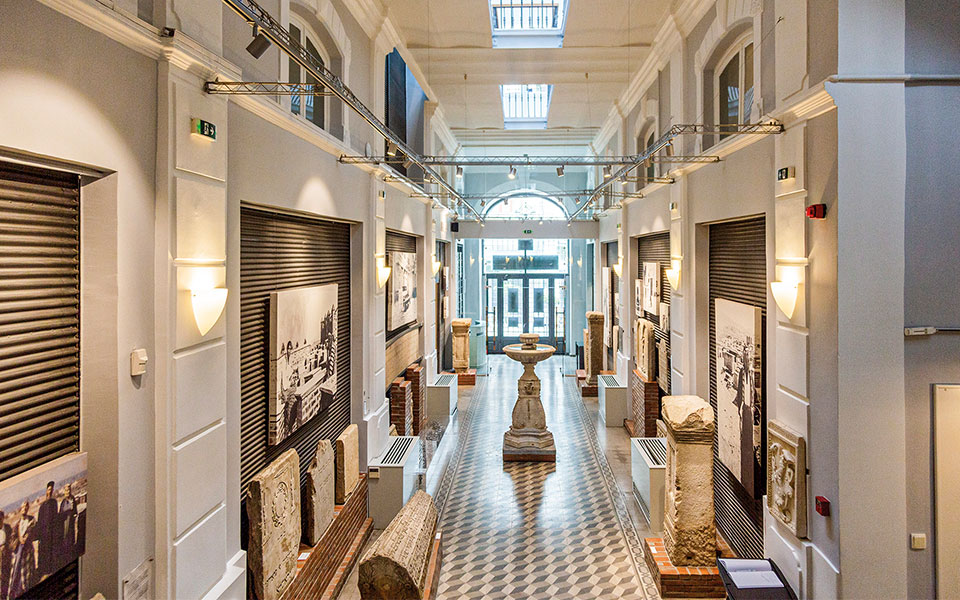
© Perikles Merakos
A change in public attitudes
Jews are now more confident in asserting their identity. “My generation was raised being told we should remain under the radar,” Alhanati says. “The idea was not to ‘provoke’ by flaunting one’s Judaism.” Mossiou adds: “They were told similar things that LGBT people are still being told today: it’s OK to be Jewish in private, but why provoke?” Vaena agrees: “Avoid visibility to stave off trouble – that was the message.”
It’s easier for Jews today to claim more visibility in Thessaloniki, thanks to significant changes in public discourse and attitudes. They all trace the new climate to the mayoral tenure of winemaker Yannis Boutaris (2011 to 2019). “His work on raising awareness of local Jewish history was of paramount importance,” Barziv says. “Interest in our history skyrocketed, both locally and internationally, and this helped the Jewish community claim a more prominent place. A chair of Jewish studies was established at Aristotle University, and the Jewish Museum became a hub for tourists and locals alike. A Memory March for the Shoah now takes place every year, helping the city remember and us to overcome our collective trauma.” Jews are now claiming a more active role in city affairs. Matalon ran for municipal councilor in the last local elections.
Tour guide Tasos Papadopoulos began Jewish heritage walks in 2015. “There’s been a tremendous increase in public interest in Jewish heritage; the Jewish-themed tours are the most popular and book out in a matter of hours,” he says. “The construction of a new Holocaust Museum is about to begin; it will dominate the western edge of the city and become a outstanding landmark. I believe Thessaloniki’s future as a tourist destination rests on its modern history and, above all, its Jewish heritage.”
Local Jews have returned after years abroad. Some, like Tiano, brought their foreign partners back with them. “I returned after 13 years. My [Jewish] husband was born in Buenos Aires and raised in Madrid.” It’s a hopeful sign. “A generation ago, everyone expected the community to disappear,” Vaena says. “However, it’s exhibited remarkable resilience and the ability to transform and regenerate. I’m optimistic about its future.”

